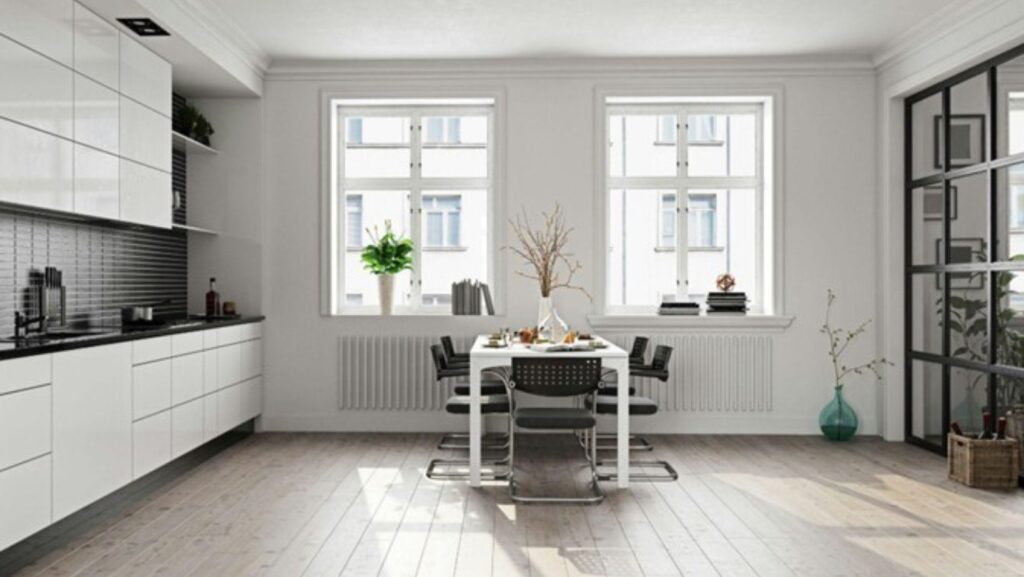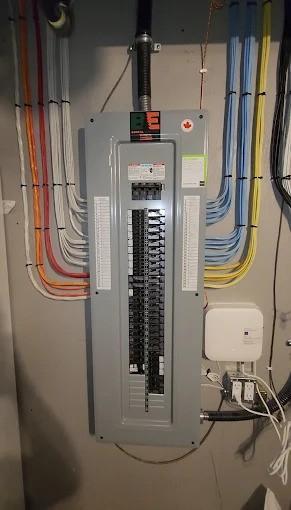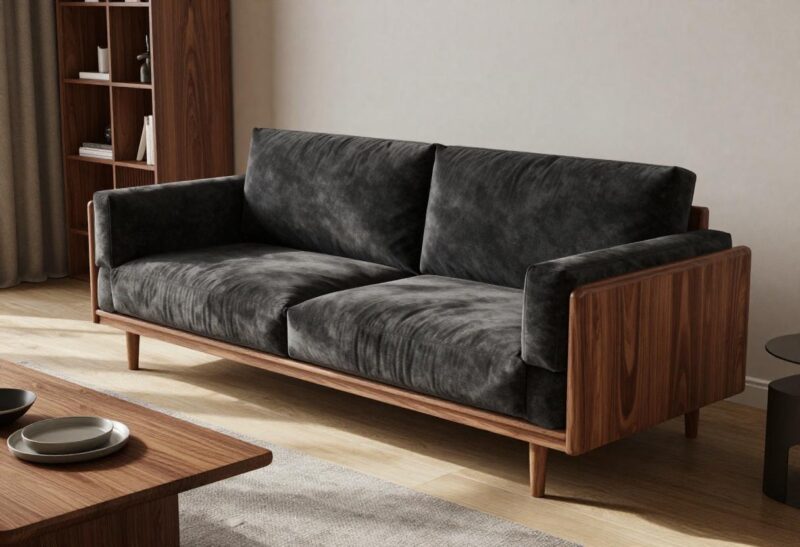
Did you know the right windows in your home can do more than just enhance its aesthetic appeal? They can significantly impact your health and well-being. From improving indoor air quality to maximizing natural light, modern windows are designed with features that support a healthier lifestyle. New windows and health benefits go hand in hand, offering an upgrade that enhances your living space while promoting better overall wellness.
By investing in new windows, you’re not just upgrading your home—you’re investing in your health. Ready to discover how these changes can transform your life? Let’s explore the benefits in detail.
How New Windows Impact Indoor Health
Upgrading to new windows offers considerable advantages for your indoor health. Modern designs prioritize better air quality, enhanced natural light exposure, and decreased noise levels, creating a more comfortable and healthier living environment.
Improved Air Quality
New windows and health benefits often go together when it comes to improving air quality. Advanced window sealing technology minimizes drafts, reducing the infiltration of outdoor allergens like pollen and dust. This is especially beneficial for individuals with asthma or allergies. Plus, modern windows can integrate ventilation features like trickle vents, ensuring fresh air circulates without compromising energy efficiency.
By preventing moisture buildup, new windows also reduce conditions encouraging mold growth. Mold, a common indoor air quality hazard, can negatively affect respiratory health. Replacing older, poorly sealed windows removes another source of contaminants entering your space, further promoting cleaner, healthier air indoors.
Natural Light Exposure
New windows can significantly increase natural light exposure in your home, producing notable health benefits. Sunlight supports the regulation of circadian rhythms, which is vital for improving sleep quality. Ample daylight also boosts mood by helping the body produce serotonin, a neurotransmitter linked to feelings of happiness and well-being.
Low-emissivity (Low-E) coatings in modern windows filter harmful UV rays while allowing visible light to pass through. This technology protects your skin, reduces glare, and prevents excessive heat while still giving you exposure to beneficial natural light. Maximizing daylight indoors creates a positive, health-centered atmosphere.
Noise Reduction Benefits
High-performance new windows integrate insulation properties that reduce exterior noise, positively affecting mental health. Excessive noise can contribute to stress, disrupt sleep, and reduce overall comfort. Dual or triple-pane window designs significantly dampen sound levels, creating a quieter and more peaceful indoor space.
Acoustic laminated glass, often used in modern window systems, adds an extra layer of soundproofing without compromising natural light or energy efficiency. By reducing outdoor noise pollution, your home becomes a more serene environment—essential for relaxation, focus, and overall health. These benefits demonstrate how improved windows directly enhance your well-being.
Psychological Benefits of Upgrading Windows
Modern windows contribute significantly to psychological well-being by enhancing your living space’s comfort and atmosphere.

Exposure to natural light and improved insulation can positively impact your mental health and overall mood.
Enhanced Mood and Productivity
Abundant natural light, enabled by energy-efficient, large-pane windows, directly increases serotonin levels. This can help you feel happier and more energized throughout the day. Maximizing natural light also reduces reliance on artificial lighting, providing a more harmonious environment.
Cleaner air supported by improved sealing technology reduces irritants, enhancing focus and concentration. This directly boosts productivity for those working from home. Studies have shown that increased exposure to daylight through upgraded windows improves task performance and reduces fatigue. Low-E-coated glass minimizes glare, creating an optimal ambiance conducive to both relaxation and efficiency.
Reduced Stress Levels
Improved soundproofing in new windows lowers exterior noise, creating a quieter, more serene indoor environment. Less noise means decreased cortisol levels, which positively affects stress management.
Modern window designs include thermal insulation that maintains stable indoor temperatures. Consistent and comfortable settings reduce discomfort and associated anxiety. Enhanced visual access to outside views, such as trees or open skies, also promotes a calming effect on your mind, reducing stress. Expert-designed features like UV-filtering coatings ensure you reap these stress-relief benefits without harmful sun exposure.
Energy Efficiency and Its Role in Health
Energy-efficient windows offer several health benefits by enhancing indoor comfort and air quality. They regulate temperatures, lower energy consumption, and create a healthier, more sustainable living environment that improves overall well-being.
Temperature Regulation for Comfort
Energy-efficient windows maintain consistent indoor temperatures by reducing heat transfer between your home and the outside environment. This stability eliminates cold drafts in winter or overheating in summer, ensuring comfortable indoor conditions for you and your family. By minimizing rapid fluctuations, these windows help reduce physical discomfort and improve sleep quality, which is critical for your health.
If you upgrade to modern windows with insulating glass or gas fills, they also prevent moisture condensation. This reduces the risk of mold growth, which can harm respiratory health. With a more stable environment, you experience fewer stress triggers caused by temperature changes, directly supporting your mental well-being.
Lower Energy Costs Leading to Well-Being
Energy-efficient windows can significantly reduce energy costs by preserving indoor temperatures. This improved energy performance requires less heating or cooling, which decreases utility bills over time. Lower financial strain contributes to a positive mental outlook, reducing anxiety often linked to household expenses.
The advanced technologies in these windows, such as low-emissivity coatings and multiple glazing layers, also contribute to healthier indoor air by limiting pollutants from outside. Enjoy cleaner air while benefiting from cost savings, which enhances your comfort and overall quality of life.

By addressing energy efficiency, new windows support health benefits that go beyond aesthetics or utility.
Choosing the Right Windows for Health Benefits
Selecting windows that align with health benefits ensures your indoor environment supports well-being. Consider materials, design, and professional installation for maximum impact. For more info about how home improvements can enhance your well-being, explore resources on healthy buildings.
Materials and Design Considerations
Prioritize high-quality materials like vinyl, fiberglass, or wood with energy-efficient properties. These materials, combined with double or triple glazing, improve thermal insulation and reduce drafts. Coatings like Low-E filter harmful UV rays, minimizing skin damage and protecting interiors.
Focus on designs that maximize natural light while maintaining privacy. Large windows or floor-to-ceiling styles ensure ample daylight, enhancing serotonin levels and regulating circadian rhythms. Ensure proper ventilation features like tilt-and-turn or awning windows to promote cleaner air circulation, reducing allergens.
Professional Installation for Optimal Results
Ensure professional installation to achieve health benefits from new windows. Improperly installed windows allow drafts and moisture, increasing the risk of mold growth. Certified installers ensure airtight seals, enhancing thermal regulation and preventing humidity issues.
Proper installation enhances noise reduction by maximizing soundproofing capabilities. In urban settings, this creates a quieter, stress-free atmosphere that supports relaxation and mental well-being. Professionally installed windows also maintain their energy efficiency, stabilizing indoor temperatures and reducing discomfort.












